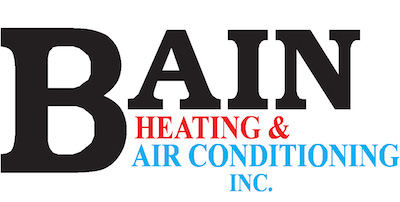Buying your first home is an exhilarating experience. You’re likely trying to keep track of a dozen things or more to ensure you’re making the right choice. We believe that understanding your future HVAC system is crucial. The property’s HVAC system represents a substantial investment and source of potential long-term costs, which is why due diligence should be a top priority for first-time homebuyers.
In the following guide, we’ll outline seven tips for discovering all there is to know about a home’s heating and cooling setup. And if you want a deeper opinion from the pros, feel free to call Bain Heating & Air Conditioning. Our staff can help you compare your options with industry insights that are second to none.
1. What Type of HVAC System Is It?
Start by identifying what specific HVAC system the home includes. Furnaces generally last longer than air conditioners, and newer types of HVAC systems like heat pumps feature average life spans that are even longer. Tracking down the make and specific model provides a clear understanding of how much maintenance it will require.
2. How Old Is the Current HVAC System?
It also helps to learn how old the HVAC system is when you’re considering a new home. In general, HVAC systems tend to run for about 10-12 years. Having the knowledge of when it was installed helps you plan for possible repair needs or when it might eventually stop working. Older systems may be more vulnerable to problems, so budgeting for a replacement unit might be needed faster than expected.
3. Is the Warranty Still in Effect?
Be sure to check the HVAC system is still under warranty. If it is, this can lighten the load for maintenance costs. HVAC warranties should take care of parts and labor, but it’s important to note that details will vary. Don’t forget to look into any terms that seem confusing to ensure you understand your coverage and potential out-of-pocket costs.
4. Does the System Have a Documented Maintenance History?
Don’t forget to check the maintenance history of the HVAC system, if such information is available. This service history can reveal if the repair needs are high or how often a tune-up was scheduled. Inquire about key tasks like filter changes, which is a positive sign indicating regularly scheduled tune-ups.
5. Do You Know Its Energy Efficiency Ratings?
Purchasing a home with a heating and cooling system with great energy efficiency means smaller utility bills and a smaller environmental impact. Check out the seasonal energy efficiency ratio (SEER) ratings for air conditioning along with the annual fuel utilization efficiency (AFUE) for furnaces. The higher the SEER rating, the more efficient the cooling over the whole season, while strong AFUE ratings mean the fuel is more effectively burned for useable heat.
6. Did You See Any Problems After Completing an Informal Inspection?
Even without heating and cooling expertise, you should still examine the HVAC system on your own. Keep an eye out for signs of problems that might have been overlooked. This includes strange noises, unequal airflow and attempts to cover up any obvious damage.
7. Have You Asked Your Local HVAC Professional?
If you’re still hesitant to make an offer because of the condition of the HVAC system, it’s never a bad idea to get an assessment and recommendation from experienced HVAC professionals. They will be much more likely to catch things you may not know about, including leaking coolant, bad electrical connections or flawed ductwork.
A Call with Bain Heating & Air Conditioning Simplifies Your Home-Buying Journey
Selecting your first home should be thrilling, and Bain Heating & Air Conditioning will do everything possible to ensure yours is too. Reach out with us at 256-270-1196. We can discuss how our HVAC services help make this process smoother, giving you what you need to step into your new home with confidence.


